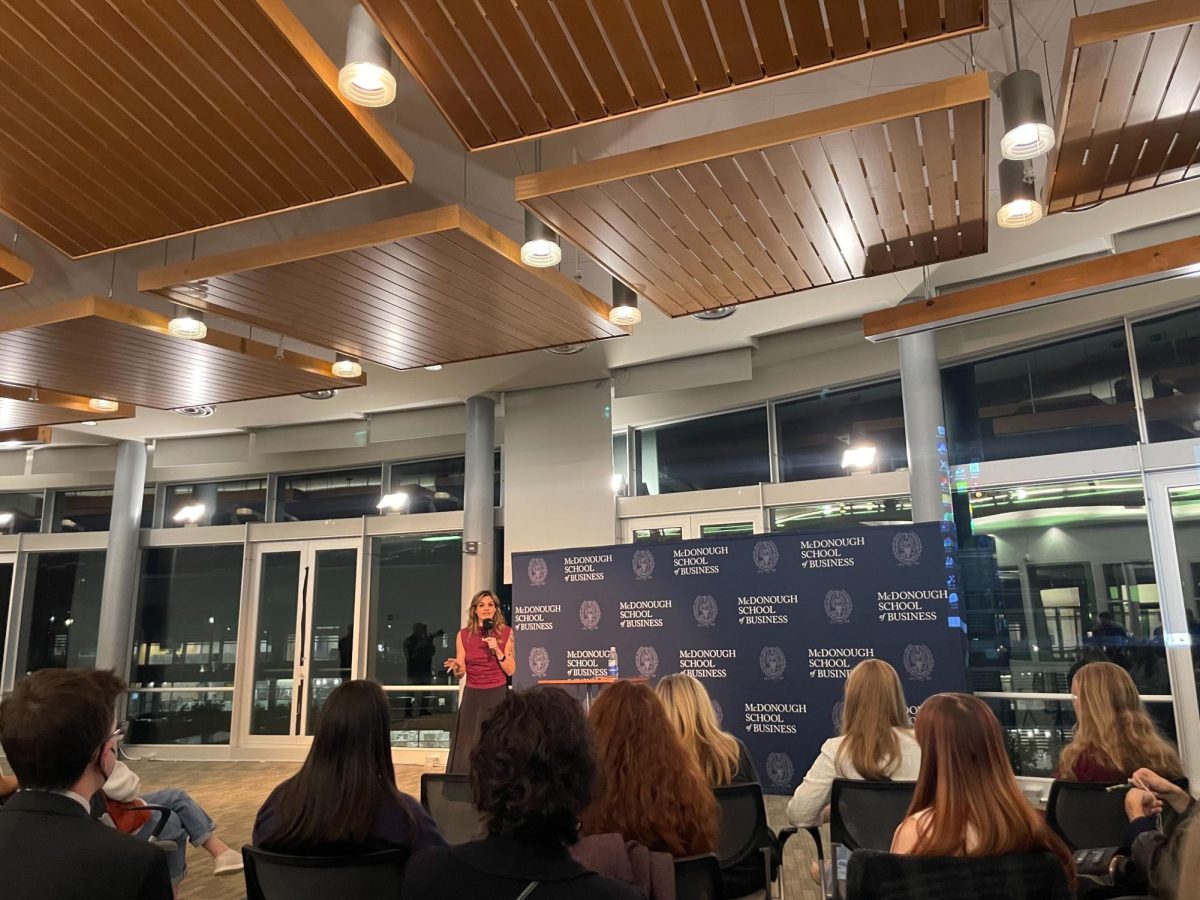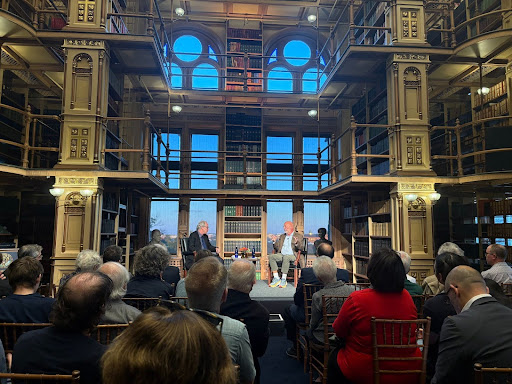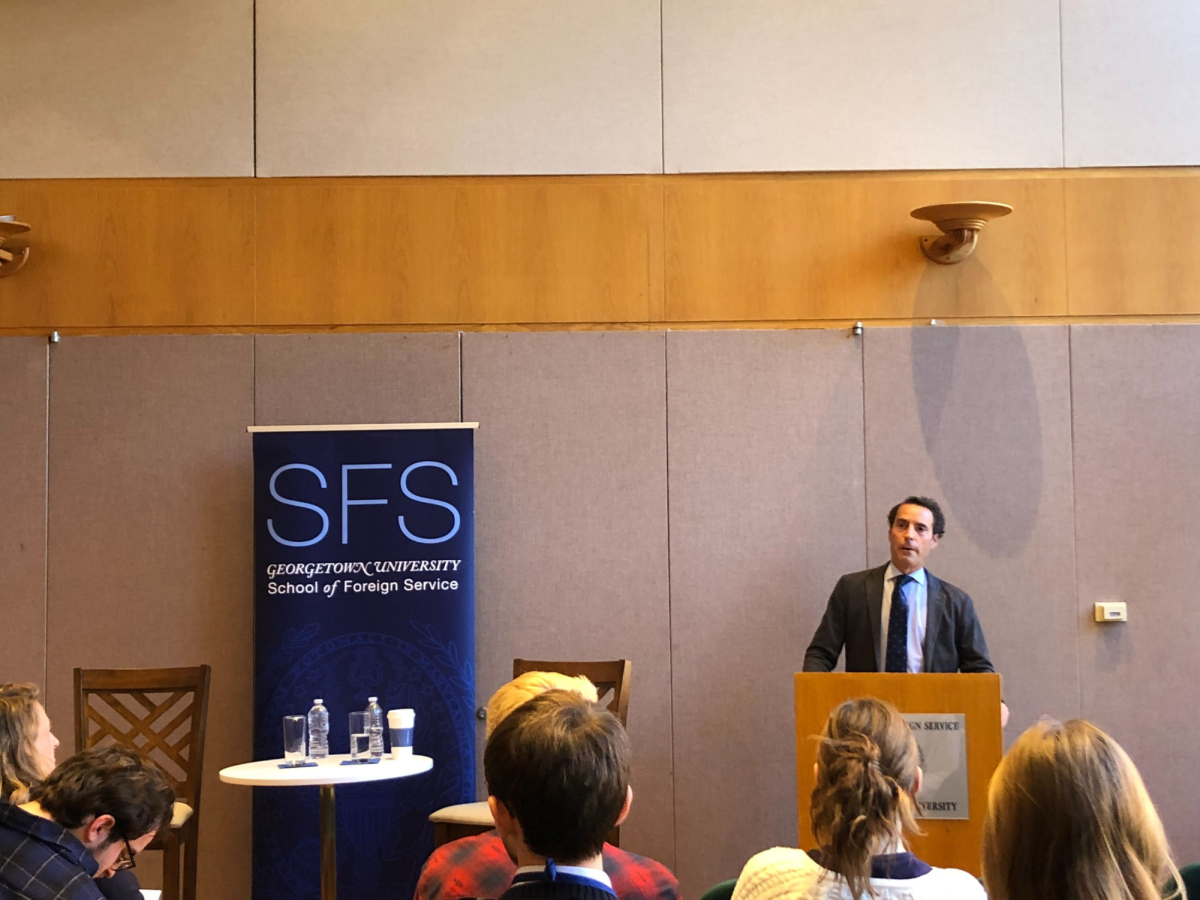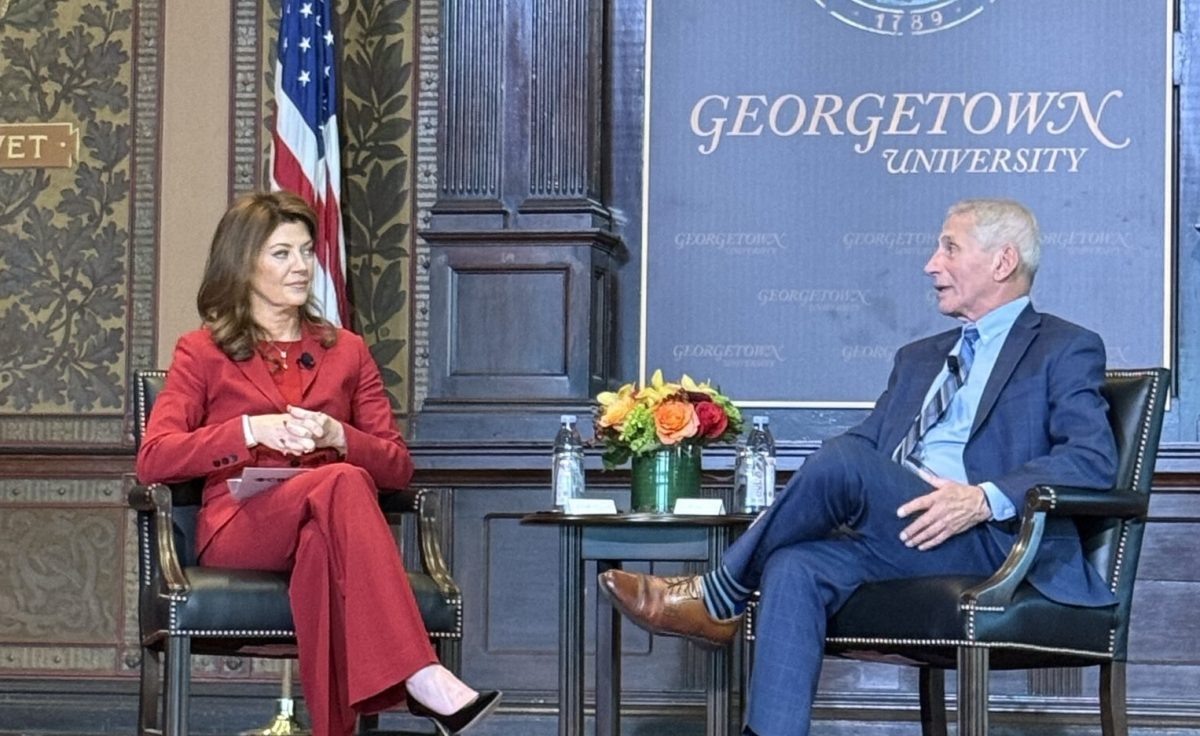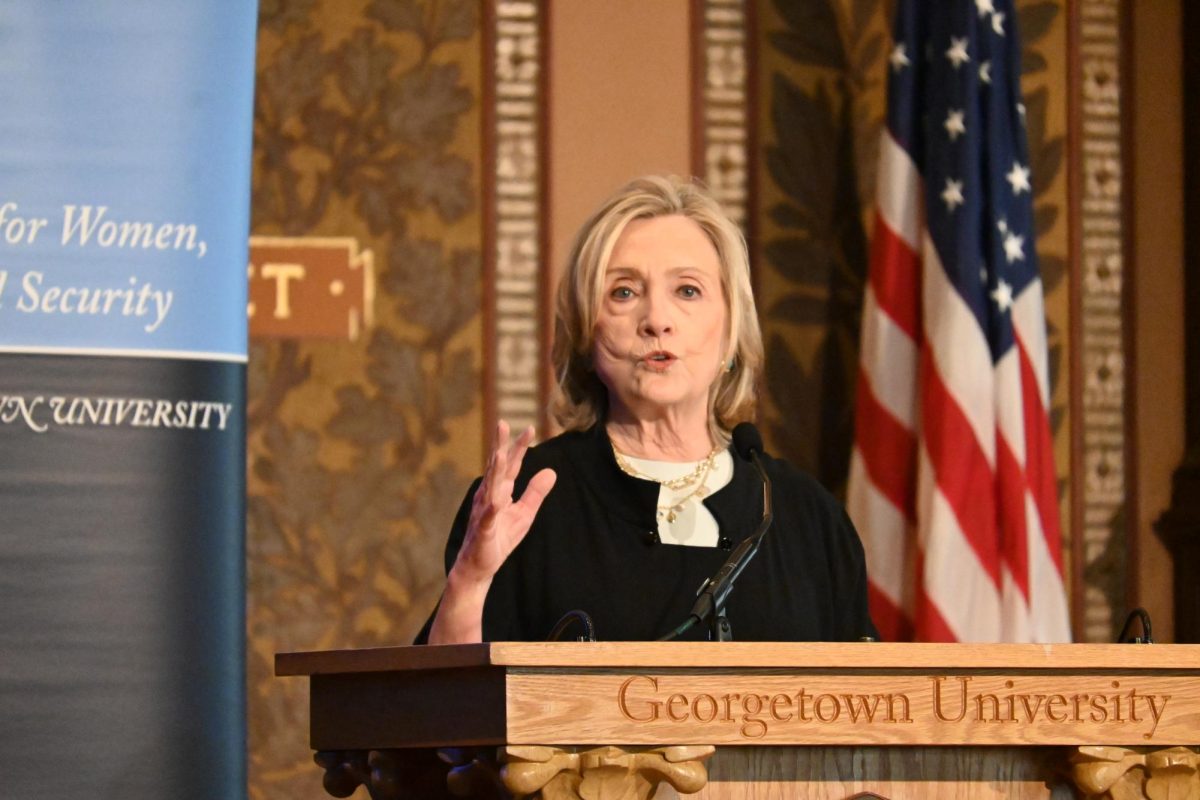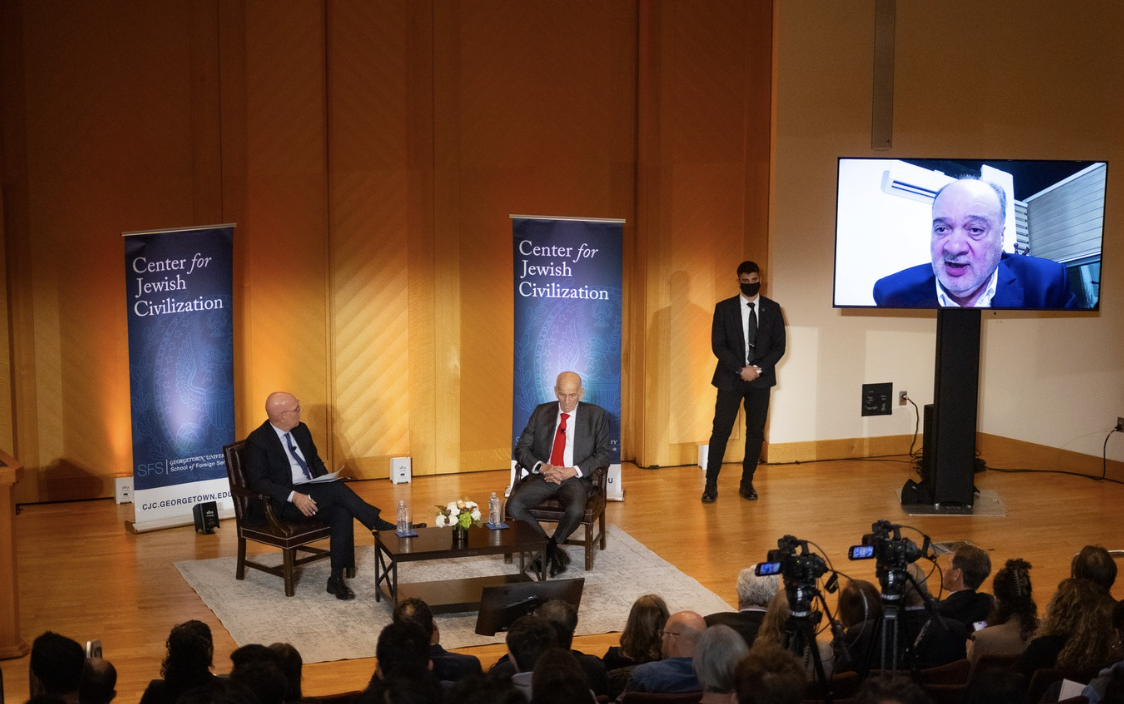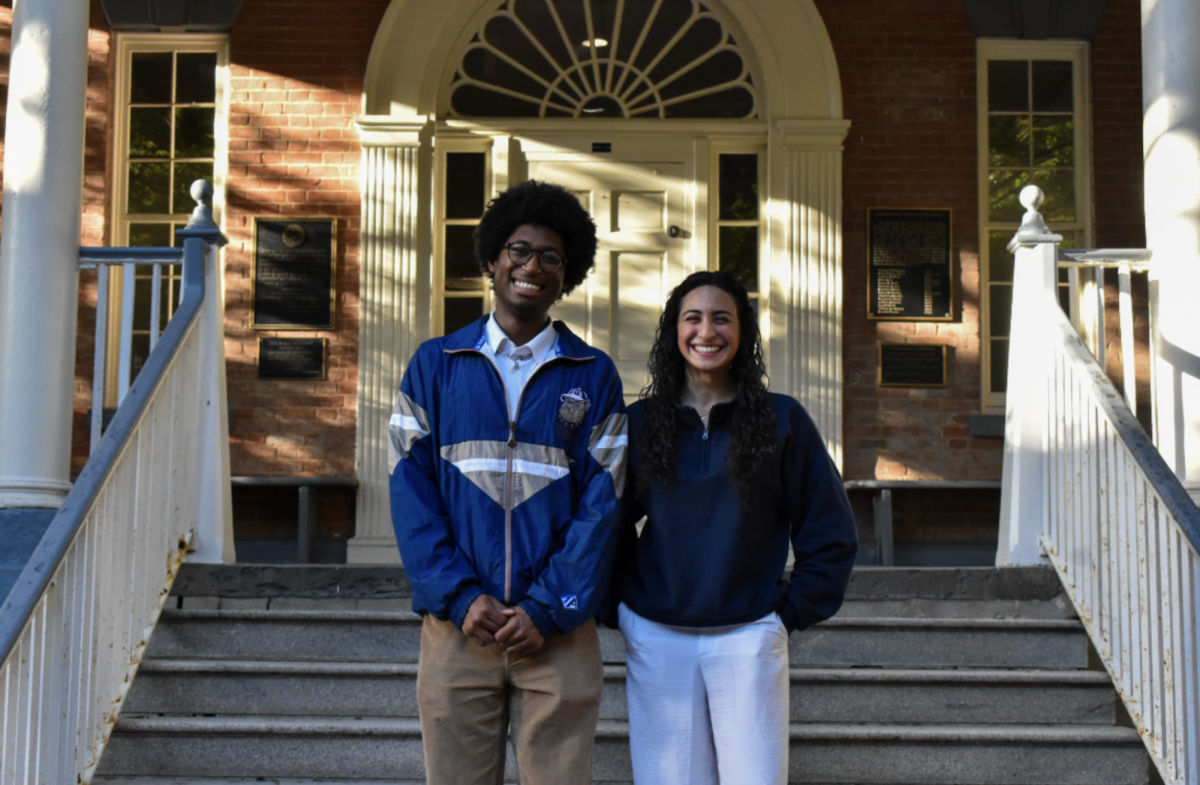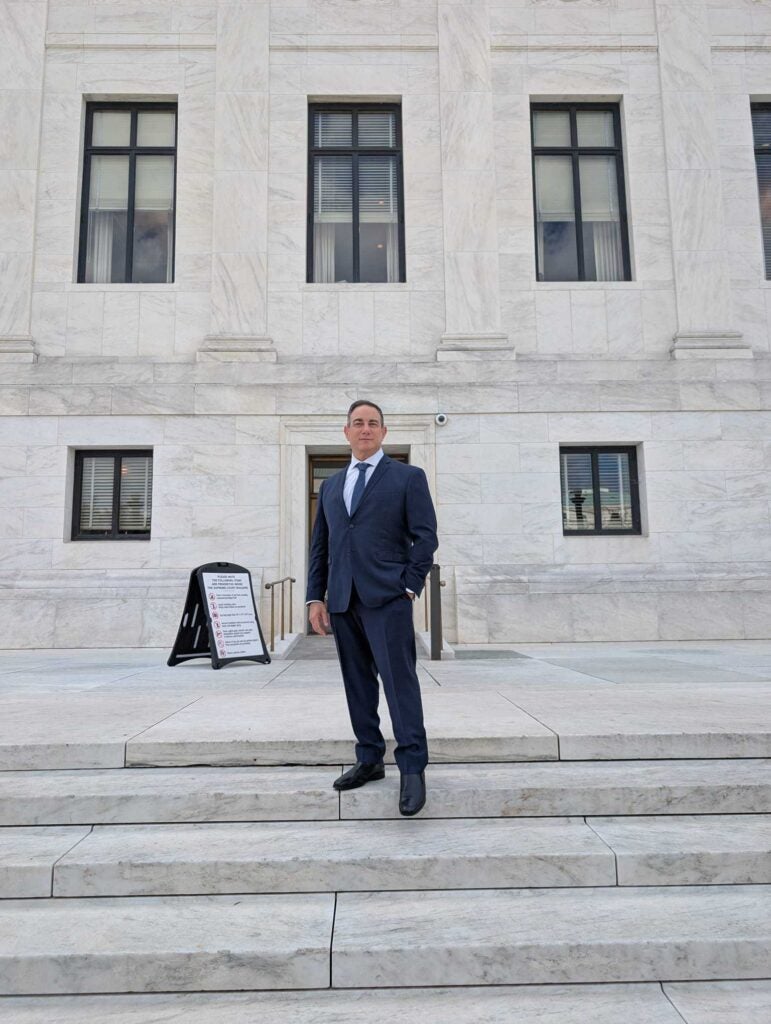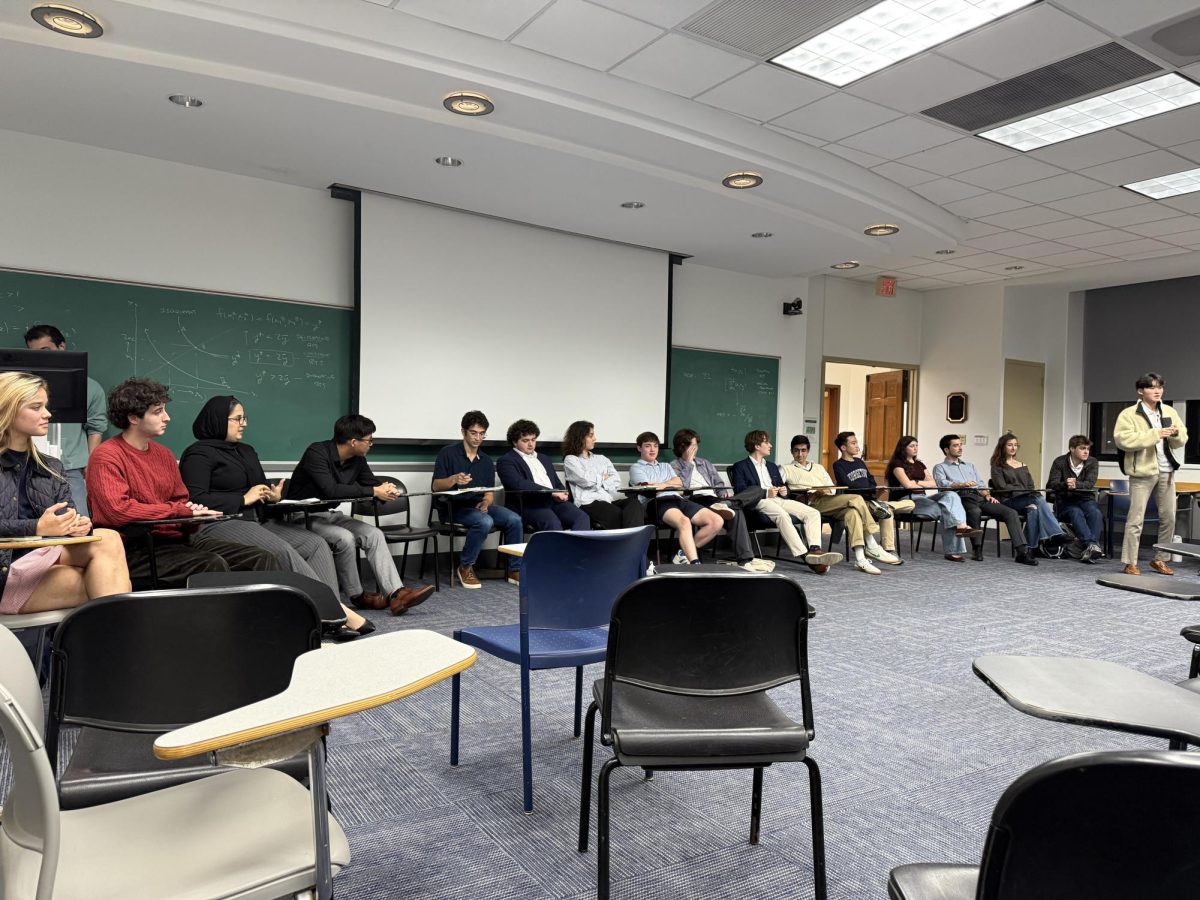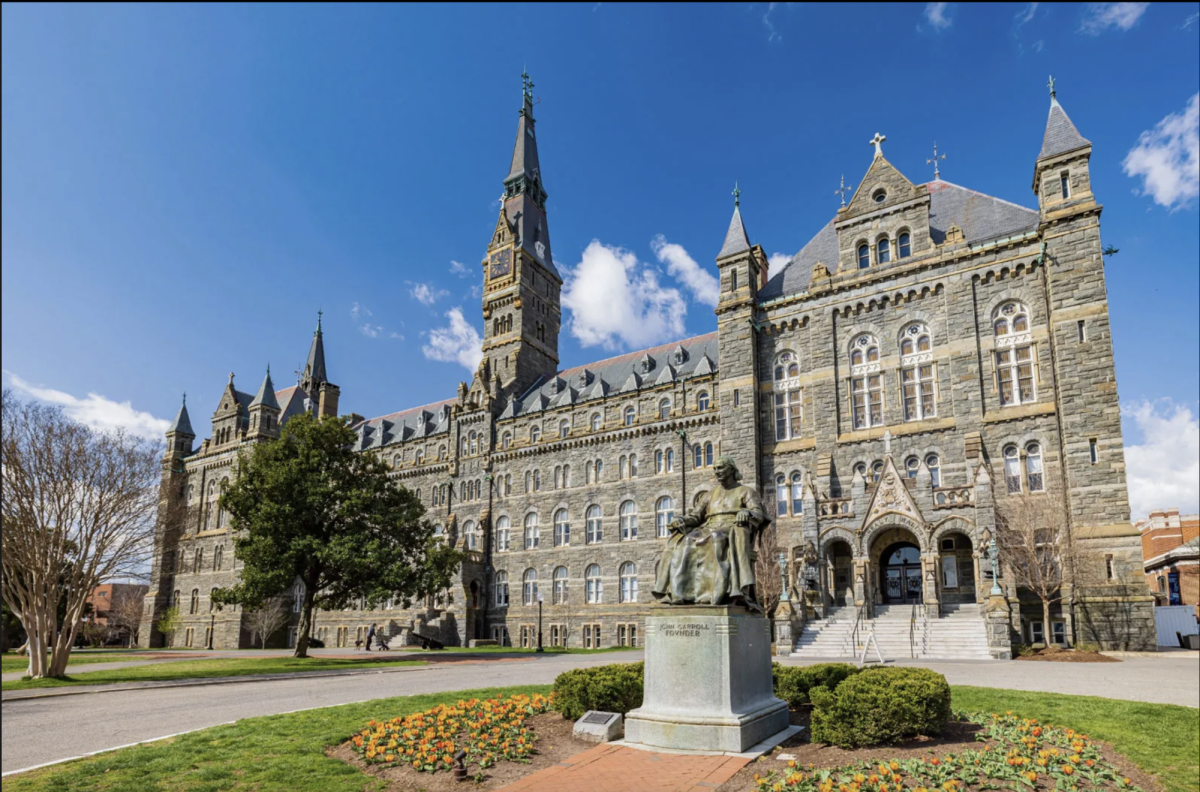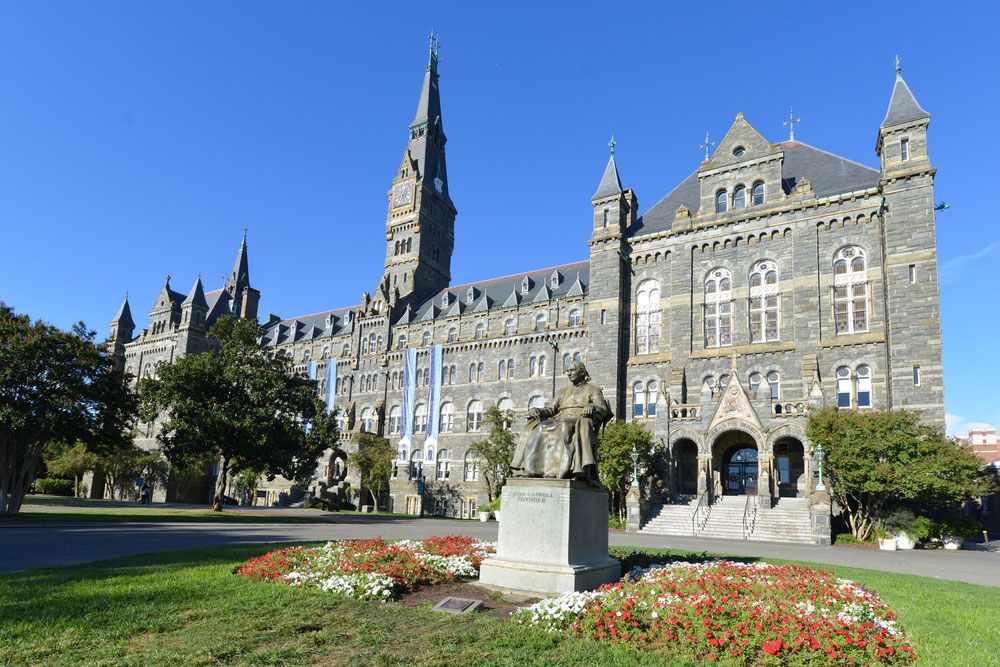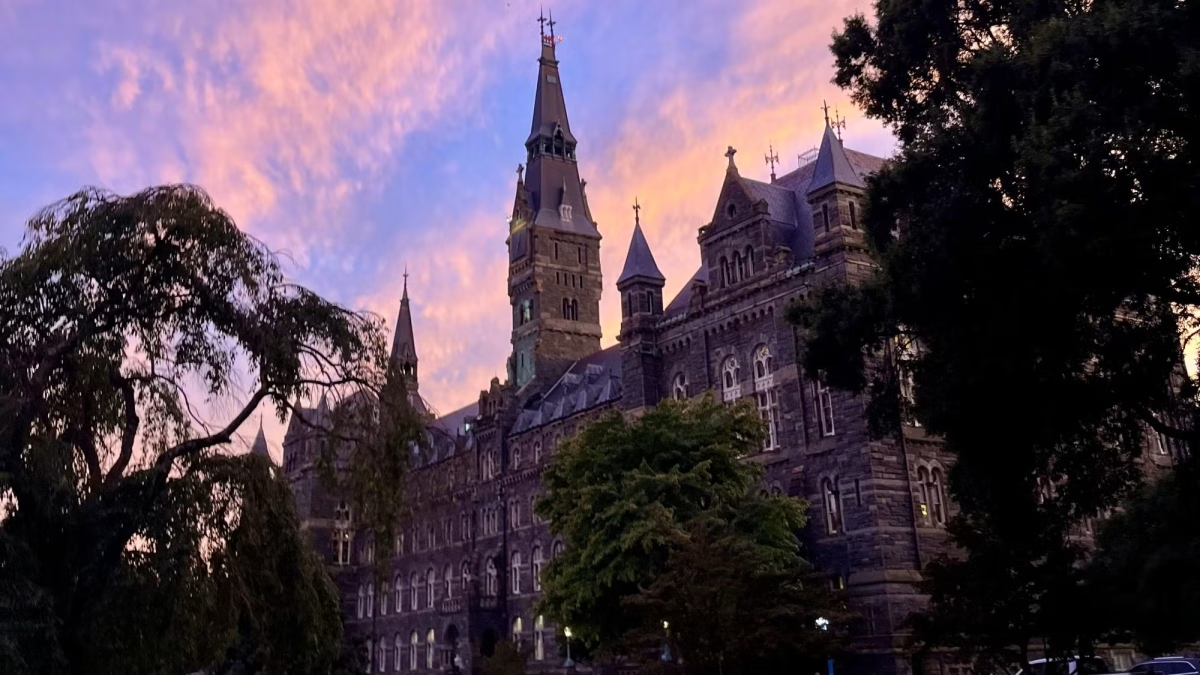A historical sociologist denounced Western nations’ lack of action on the ongoing humanitarian crisis in Gaza during a Georgetown University event Sept. 29.
Martin Shaw — an emeritus professor of international relations and politics at the University of Sussex and the recipient of a lifetime achievement award from the International Network of Genocide Scholars — examined the historical and sociological arguments supporting the legal case that there is a genocide in Gaza at the event. The Alwaleed Center for Muslim-Christian Understanding (ACMCU), which aims to foster discourse between the Muslim world and the West, hosted the event as a part of its ongoing Gaza lecture series.

Shaw said the crisis in Gaza could not be attributed exclusively to the current phase of the Israel-Hamas war because the conflict has been ongoing for decades.
“The relationship of war to genocide is a central paradox,” Shaw said at the event. “Genocide must be distinguished from war, but it typically occurs within the context of war.”
“When we say that genocide occurs, we are not simply talking about a set of events which are completely separate from war,” Shaw added. “In most cases, we’re talking about how war and genocide are intertwined.”
A growing body of scholars and advocates have accused Israel of genocide in its war against Hamas in Gaza, including the International Association of Genocide Scholars — made up of the world’s leading genocide scholars — and a United Nations commission. Israel has consistently denied claims of genocide, often characterizing such claims as antisemitic or anti-Israel. The International Court of Justice, which adjudicates genocide cases, has not yet made a ruling in a case brought against Israel by South Africa.
Nader Hashemi, director of the ACMCU, said the center hosted Shaw to provide a unique historical perspective on the conflict.
“The genocide in Gaza is at the top of the US national agenda and international agenda — its one of the biggest themes in our modern world along with the Ukraine,” Hashemi told The Hoya. “Because we’re running a Gaza lecture series, we thought that we would bring in a noted expert on genocide a historian and sociologist who could talk about how this genocide in Gaza compares and contrasts with other genocides in human history, what’s unique and different about it, and how can we understand this genocide in historical and comparative perspective.”
Shaw and Hashemi also spoke at Busboys and Poets, a Washington, D.C. restaurant chain dedicated to social change, about the same topic Monday evening.
Shaw said the United States and Israel have influence over international courts, making it difficult to resolve the conflict through institutions or hold implicated actors accountable and putting greater responsibility on Western nations.
“The problem here is not non-intervention, but deep intervention on Israel’s side,” Shaw said. “International courts have been unprecedentedly active in this case, but they have also been unprecedentedly attacked by the United States and Israel and barely defended by Europe. All this was true under Biden, but Trump’s direct intervention in managing the conclusion of Israel’s policy towards the Palestinians in Gaza has changed the character of the events, and I think shifted the center of the axis of the perpetrator block much closer to where we stand today.”
President Donald Trump, who hosted Israeli Prime Minister Benjamin Netanyahu at the White House as Shaw’s lecture was taking place, has repeatedly proposed the United States take “ownership” of the Gaza Strip. At a Sept. 29 news conference with Netanyahu, which took place after the ACMCU lecture, Trump laid out a new peace plan that would demilitarize Gaza, disarm Hamas and create a new civil administration for the territory.
Shaw said social and political attacks on Gaza have created a new theater of war that assaults Gaza’s character, rather than just its territory and people.
“Gaza has a very modest population — really it’s about a third of D.C.,” Shaw said. “So it’s possible for an advanced military machine not only to cripple that society, but also to envisage a more holistic solution. And here, I think, we come up against the fact that what is going on in Gaza is a very modern genocide.”
Shaw said Israel’s military actions in Gaza are distinct from previous cases he has seen because of its influence on global politics.
“It’s very different from many of the genocidal conflicts that we see elsewhere in the world and have seen in recent decades,” Shaw said. “As well as being a huge new catastrophe for the Palestinians, it represents the new dominant forces in world politics, economy and society today, and it is a major warning to the world of how power is changing in the current period, and I fear that the suffering that we see in Gaza will not be the last of its kind in the coming years.”


